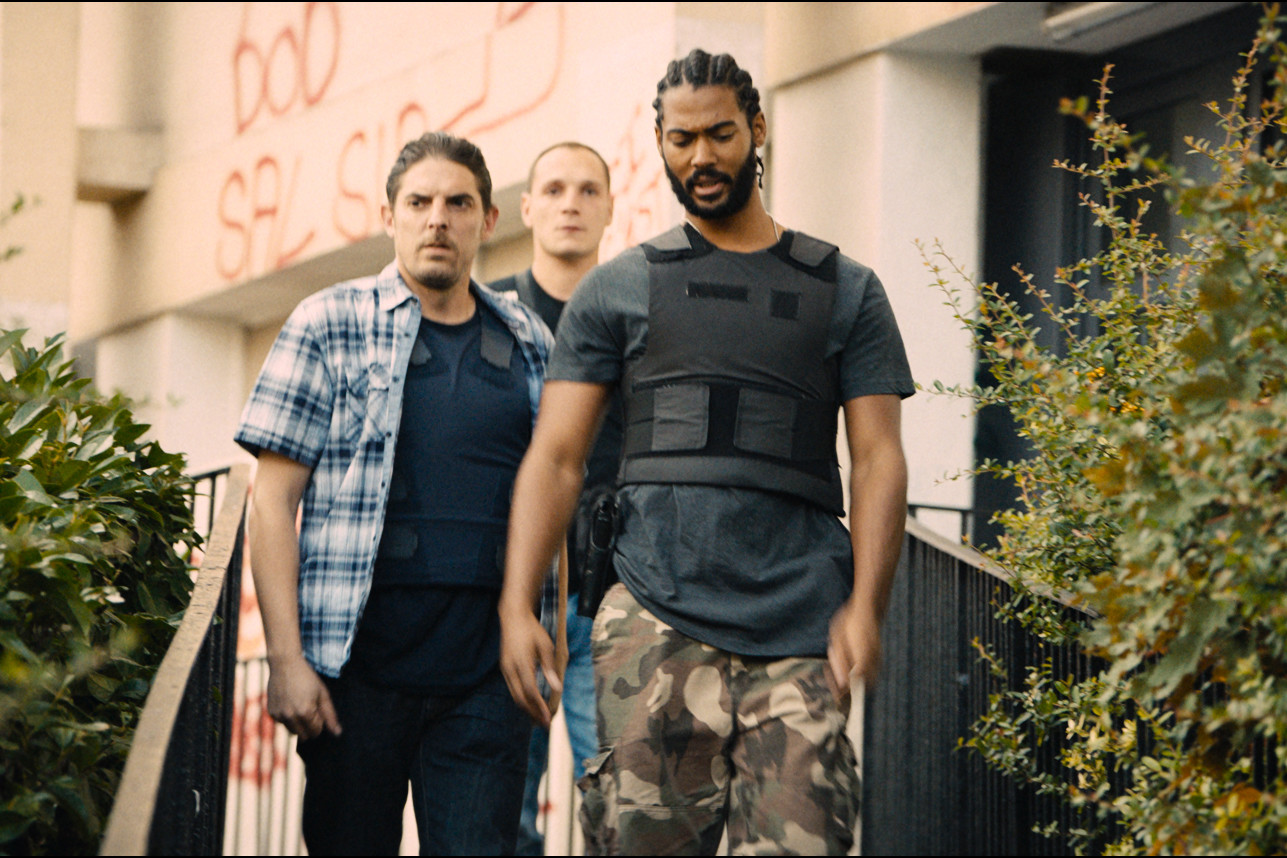You’ve gotta hand it to the poor French. They produced 3 great films in 2019…only to be outshadowed by a Parasitic global phenomenon. Props are also in store for Lady Ly. It takes guts to make a movie and call it Les Miserables – only one of the most famous books/musicals in human existence – and to totally earn that name with a compelling sprawling epic set in modern Paris.
The loose story is a Training Day like scenario for 3 beat cops on patrol in the Paris suburbs. Stephane (Damien Bonnard) is the new guy, recently arriving to better care for his son. His two trainers in the anti-crime unit are brigadier Gwada (Djibril Zonga) and “Pink Pig” squad leader Chris (Alexis Manenti), who earns all those pigs he receives. On the beat, Stephane meets all the different ethnic groups vying for power and their leaders: gypsy lion tamer Zorro (Raymond Lopez), The Mayor (Steve Tientcheu): incumbent African leader, ex con and Muslim Brotherhood figure Salah (Almamy Kanoute). Things spiral into a frenzy when young troublemaker Issa (Issa Perica) steals a lion cub from Zorro, who threatens violence on the Africans and Muslim brotherhood if the cops don’t return the cub within the day.
Victor Hugo’s Les Miserables got its power from the policeman understanding that the criminals were not evil, merely a product of the poor hand of cards they were dealt. The 2020 version simply modernizes that theme, using the power of complex situational specificity. This Paris is NOT on the tourism pictures for the city: it is like any poor, underfunded area: semi-lawless, with various factions and the police competing for their right to exist. The audience starts initially with the cops, who you’re inclined to side with…until you realize that Chris is a vile, capitalistically resourceful dictator, ruling with fear. The Mayor, Salah, and Zorro fall in line under him, which gives them their status and respect in the neighborhood: when conflict arises, they either settle with violence, or appeal to Chris if it escalates out of control, making everyone scared and powerless along the way. All the leaders act completely differently in Les Miserables: Salah is the silent presence, Zorro/Chris are the opposite, and The Mayor is the schemer. The same differences fall to the powerless: Stephane is innocent and more empathetic than Chris, hoping to resort to non violence and patience to hope that cooler heads will prevail, while Gwada operates in between Stephane and Chris, smarter than he lets on, but knowing his place in the power structure.
And what happens during this fight for power? The kids like Issa and the drone operating dorky Buzz (Al-Hassan Ly) are beset with enforcers on all sides. Every day for these kids is scary, with threats popping up every time they even try to have a little fun and make a few mistakes. Ya know, be a kid. Kids like Issa can’t grow up quickly, so they’re caught in the power crossfire, becoming the fall guy or spark in a conflict they had no intention of creating. Les Miserables brilliantly hides its cards until the very end of the film, when the point of Stephane et al’s crazy day comes to full fruition. Les Miserables doesn’t presume to have too many answers, but it will leave you with oh so many questions, none of which are easy, and most of which have answers that leave someone in pain: tough, but honest, and ultimately, powerful.
Jean Valjean, Javert, and Gavroche, go by Salah, Gwada, and Issa in Les Miserables today. While the novel’s relate-ability helps the audience connect with the material, it’s truly disheartening to see a novel written over 150 years ago be as prescient still today. I hope some day we can all learn from these lessons perpetually taught by the likes of Victor Hugo, with people like Lady Ly lighting the flame of knowledge this time around.

